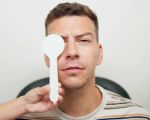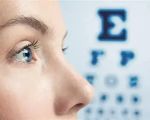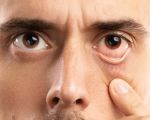
- Why Hydration Matters for Eyes
- How Dehydration Affects Eye Health
- Practical Ways to Maintain Eye Hydration
- Real-Life Examples Showing Hydration Benefits
- Expert Advice for Healthy Eye Hydration
1. Why Hydration Matters for Eyes
Our eyes rely heavily on adequate hydration to function optimally, yet many people underestimate the importance of hydration for eye health. The eye’s surface is constantly exposed to the environment, and its tear film—a thin layer of moisture covering the cornea—is essential for clear vision and comfort. Without enough hydration, this tear film becomes unstable, leading to dryness, irritation, and blurry vision.
More than just surface comfort, hydration supports critical eye functions such as nutrient transport and waste removal. When the body is well-hydrated, the fluid balance within the eyes remains stable, which helps maintain intraocular pressure and prevents common issues like dry eye syndrome. For anyone who spends long hours in front of screens or in dry environments, understanding and maintaining hydration is crucial.
At Eye Docs, we emphasize that hydration isn’t just about drinking water; it’s about adopting habits that preserve your eye moisture and protect your vision over time.
1.1 The Science Behind Eye Hydration
The eye’s tear film consists of three layers—lipid, aqueous, and mucin—that work together to keep the eye moist and shielded from irritants. Hydration directly impacts the aqueous layer, which constitutes most of the tear film’s volume. When hydration levels drop, this aqueous layer thins, causing dryness and discomfort.
1.2 Hydration and Eye Aging
As we age, natural tear production decreases, making the eyes more vulnerable to dryness and damage. Staying properly hydrated can help slow this decline and reduce the risk of age-related eye issues like chronic dry eye and discomfort.
2. How Dehydration Affects Eye Health
Dehydration’s impact on the eyes can be subtle at first but quickly escalate if ignored. When the body lacks fluids, the eyes are among the first to show symptoms, manifesting as dryness, redness, burning, or a gritty sensation. These symptoms are often signs of the tear film breaking down due to insufficient hydration.
2.1 Symptoms and Long-Term Consequences
Common symptoms include:
- Eye fatigue and strain
- Increased sensitivity to light
- Blurred vision and difficulty focusing
Long-term dehydration may contribute to more serious problems such as corneal ulcers and increased susceptibility to infections. The discomfort can also affect daily activities, from reading to working, leading to reduced quality of life.
2.2 The Role of Environment and Lifestyle
Dry climates, air conditioning, prolonged screen time, and certain medications can exacerbate dehydration’s effects on the eyes. Even moderate dehydration during physical activity or hot weather can trigger symptoms, emphasizing the need for proactive hydration strategies.
3. Practical Ways to Maintain Eye Hydration
Keeping your eyes hydrated is more than just drinking water—though that is a critical first step. Integrating comprehensive hydration habits into your lifestyle can significantly improve eye comfort and health.
3.1 Optimal Water Intake
Adults should aim for at least eight glasses of water daily, but needs can vary depending on activity, environment, and individual health. Regular hydration supports not only the eyes but overall bodily functions.
3.2 Environmental Adjustments
Using humidifiers in dry environments helps maintain ambient moisture, reducing tear evaporation. Additionally, taking breaks during screen time following the 20-20-20 rule—every 20 minutes, look at something 20 feet away for 20 seconds—reduces eye strain and supports natural blinking, which helps replenish eye moisture.
3.3 Nutritional Support for Eye Hydration
Dietary choices impact eye hydration. Foods rich in omega-3 fatty acids, vitamin A, and antioxidants support healthy tear production. Including flaxseeds, leafy greens, and fish in your diet can make a real difference.
3.4 Specialized Eye Care Products
Sometimes, lifestyle changes aren’t enough. Using artificial tears or lubricating eye drops can provide immediate relief. For personalized recommendations, Eye Docs offers tailored advice and products suited to individual needs, ensuring you find the most effective solutions.
4. Real-Life Examples Showing Hydration Benefits
Consider Sarah, a graphic designer who struggled with chronic dry eyes after long hours on her computer. After consulting with experts at Eye Docs, she increased her water intake, adjusted her workspace humidity, and began using recommended lubricating drops. Within weeks, Sarah noticed reduced redness and much greater comfort, allowing her to focus better and work longer without irritation.
Similarly, Mark, an outdoor enthusiast, experienced eye discomfort due to dehydration during summer hikes. Learning about hydration’s role in eye health motivated him to carry water consistently and use protective eyewear, significantly improving his eye comfort and overall outdoor experience.
4.1 Case Study: Hydration and Screen Time
Studies show that people who maintain adequate hydration while working on digital devices report fewer symptoms of eye strain and dryness. This real-world evidence underlines that hydration isn’t just a general health tip—it’s a specific, effective tool in preserving eye wellness.
5. Expert Advice for Healthy Eye Hydration
Eye care professionals emphasize a holistic approach. While drinking water is essential, balancing it with nutrition, environment, and proper eye care routines leads to the best outcomes.
Experts recommend regular eye exams to monitor hydration-related issues and to customize hydration strategies. Eye Docs provides comprehensive consultations to help individuals develop personalized hydration plans and access products that best support eye moisture retention.
Incorporating mindfulness about hydration into daily routines can transform eye health, preventing discomfort and preserving clear vision well into the future.








